Last Updated on May 5, 2022
Working on cars or trucks can be a lot of fun. Not only does it save money, it fills you with a sense of pride knowing that you maintain your own machine, and it only runs because you make it so!
That said, with great power comes great responsibility – we are working under machines that weigh anywhere from one to four tons, and they will squish us like a bug if we don’t take the necessary safety precautions.
Here are some safety tips that any DIY mechanic should be aware of.
Tips for Safely Working on Your Vehicle
Note: This list is by no means comprehensive. Always consult the factory manual before tackling a job. If you don’t feel comfortable with a particular task, don’t be afraid to take the car to a local mechanic or ask an online mechanic for help.
#1 – Lift and Support the Car Properly
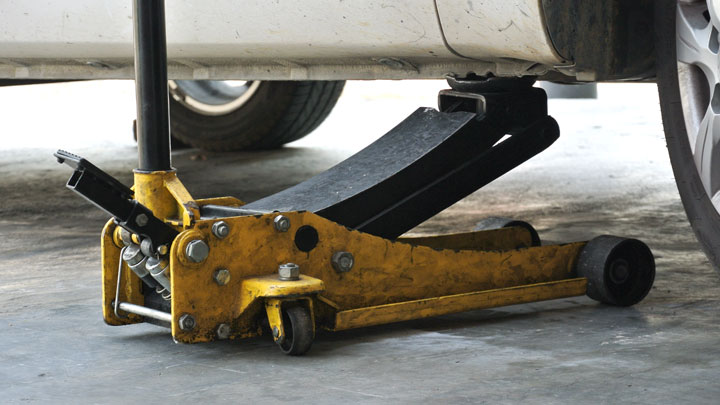
Jacking up the vehicle is the first step in most jobs, and one of the most important to get right. Placing the jack or jack stands at improper jacking points can damage the vehicle.
In some cases, the vehicle can even slip off the jack or jack stands, and you don’t want to be underneath if this happens. Knowing how to properly use a floor jack is something every home mechanic should know.
Every factory manual or specific auto repair manual will list the proper jacking points and these can also sometimes be found on the forums for your vehicle.
Also, remember to use the appropriate saddle for your jack or jack stands. Using the wrong shape or material can increase the chance of the vehicle slipping. This happened to me once.
On my car, the front subframe is an acceptable jacking point. I put the jack there to lift the front of the vehicle, but my jack had a metal saddle. The metal on metal contact did not provide enough grip to support the vehicle, and it slid right off without warning.
Fortunately I was well clear of the car so the only things I bruised were my ego and front of the subframe. I got lucky – if the jack slid off the back I probably would’ve put a hole through my oil pan!
Don’t cheap out on your jack or jack stands. A good floor jack will last you many years of reliable usage. Always make sure your stands are rated high enough to support the weight of your vehicle.
The best jack stands for you now may be worthless if you get a heavier vehicle in the future so when in doubt, buy stronger stands than you think you’ll need but keep in mind their clearance or footprint may be larger.
#2 – Work With a Buddy (or with another person in the vicinity)

Some jobs that are nearly impossible on your own are fairly easy with a helper. Sometimes two hands just aren’t enough to position a part back into place, and other times you merely need someone to hold the flashlight.
Additionally, a friend can call for help if you become incapacitated and unable to call for help yourself. Safety should always be top priority, but you should be extra cautious when you’re home alone and know it could be hours before you see another human.
If your wife is going to be gone for hours, work with the garage door open so the neighbors can see and hear you in case something were to happen.
If you have kids, this might be a great way to work in some bonding time while fixing the family car. A younger child can hand you tools or hold the flashlight, plus you can teach them practical life skills as you go.
#3 – Follow the Factory Manual Diligently
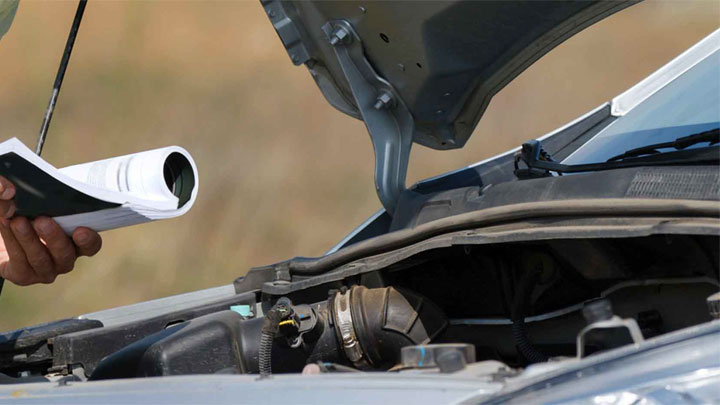
The factory manual (not to be confused with the owner’s manual) was written by the manufacturer, the group of engineers who know your car the best.
While the owner’s manual is great for basic information, the factory manual contains critical information for more involved jobs such as torque specs, wiring diagrams, fuel system depressurization, and airbag diffusal procedures if you’re comfortable replacing an airbag (not recommended).
These aren’t tasks you should take on by the seat of your pants, as there is often a specific order you have to do things in order to maximize safety and minimize damage potential.
While factory manuals are usually the best, they are often not cheap. As an alternative, a Chilton or Haynes manual specific to your car is a good enough option in most cases.
#4 – Take Her For a Test Drive When Done
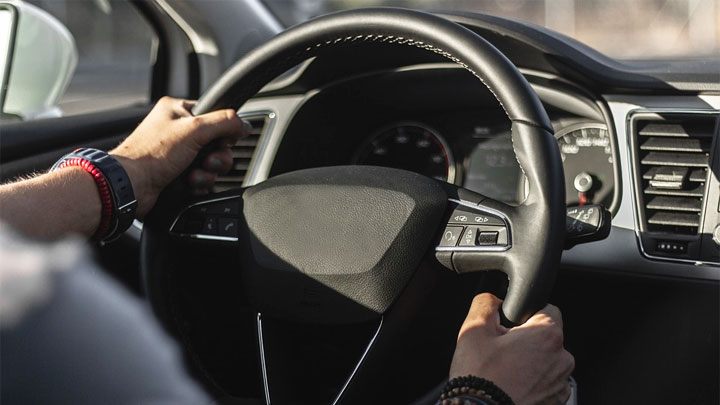
Any time you take something apart and put it back together, there’s a chance something didn’t go back the way it was supposed to. It’s easy to forget a step in a more complex job and you want to make sure your car is nice and dependable before you really need to rely on it to get you somewhere safely.
Start out slow and pick a nice, safe area to do a systems check where you’re unlikely to hurt anything if you had a lapse in concentration during the job.
For instance, my buddy almost drove off without tightening his lug nuts all the way because he was chatting with me and forgot. Don’t be that guy!
#5 – Wear Gloves
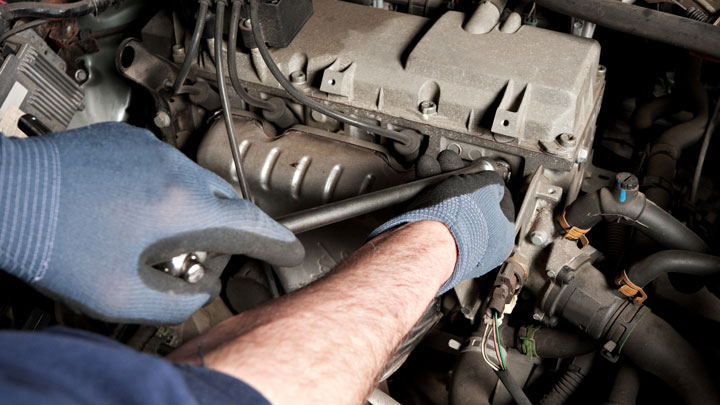
Though you may find it cool to show off your wounds to the ladies, few people enjoy having scraped knuckles. If you’re putting a lot of force on the wrench to break a seized bolt in a confined space, chances are it’s going to give way very suddenly.
At this point, your hand becomes a guided missile that always seems to target the sharpest object in the engine bay. A good set of mechanic’s gloves will help minimize the blood, pain, and swearing associated with this phenomenon.
Engine oil, transmission fluid, coolant, and other fluids are toxic and come out of a warmed up car at boiling temperatures. Nitrile gloves (my favorite) are great when changing the engine oil, fuel filter, or coolant to minimize contact with toxic substances my skin could potentially absorb, and also reduce the risk of being burned.
Because nitrile gloves are so cheap, just toss them when you’re done and avoid the hassle of spending minutes scrubbing grease off your fingers or under your fingernails.
#6 – Wear Eye Protection

Nobody likes dirt falling in their eye, but how about a bell housing bolt? One time I stuck a bell housing bolt in its home when changing the clutch. While I was lining up the transmission to go back in the car, that bolt fell out and bounced right off my glasses.
If I hadn’t been wearing eye protection, it would’ve gone straight into my eye. It left a good sized chip in the lens, but man… that could’ve been my cornea.
Wear safety glasses when you can, as these are built to withstand higher impacts standard prescription glasses aren’t meant to protect against. Consider them cheap insurance for your eyes.
#7 – Wear a Dust Mask
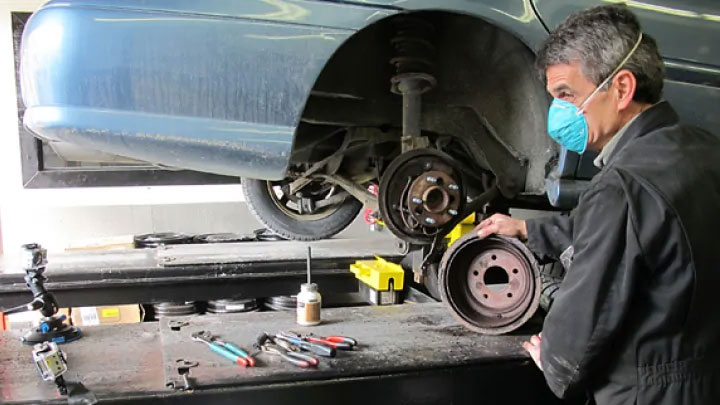
Nearly everything we touch in the garage “contains chemicals known to the State of California to cause cancer and birth defects or other reproductive harm”. Some jobs generate a lot of dust, even if you’re careful not to blow it around the shop.
Take brakes, for instance. Brake dust gets into the air and can stay there for some time, even if you are careful. Some older brakes can even contain asbestos, which can cause a life threatening condition called mesothelioma (you’ve probably seen those lawyer commercials).
One way to reduce the chance of these harmful contaminants from entering your body is to cover your mouth and nose with a particle mask (aka: dust mask). A mask has the added benefit of keeping road grime and caked on oil out of your mouth if you’re underneath the vehicle cleaning the undercarriage.
#8 – Know Your Limits
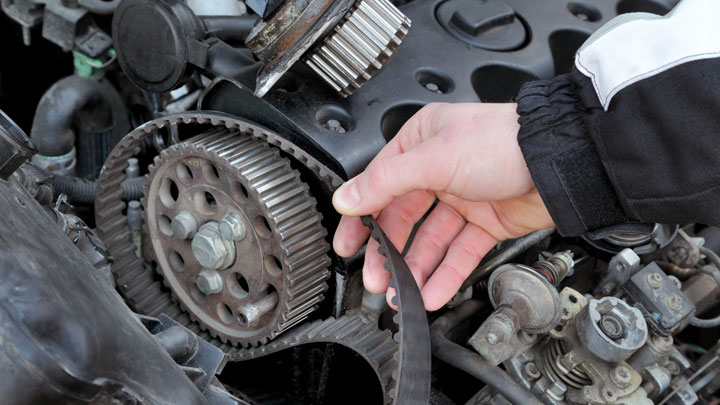
My father always told me “a man knows his limits”. Don’t be afraid to ask for help or even take your vehicle to a professional if you feel way out of your depth. It’s better to abort a project halfway through than risk a permanent injury, or even death.
If you find yourself getting frustrated, don’t be afraid to take a break and come back to the task later. If you’re anything like me, you are more likely to throw caution to the wind and hurt yourself when you are angry.
Taking a few minutes to regroup, grab another beer, and Google around for a shortcut you might have missed is time well spent.
Final Advice
While there are many potential hazards in the garage, there is nothing to fear if the necessary precautions are taken. Following instructions, giving the task at hand your full attention, and having a healthy respect of the vehicle go a long way in ensuring your safety.
When in doubt, always ask someone who has more experience. At the end of the day, it’s not worth risking your life for the sake of pride or saving a few dollars.


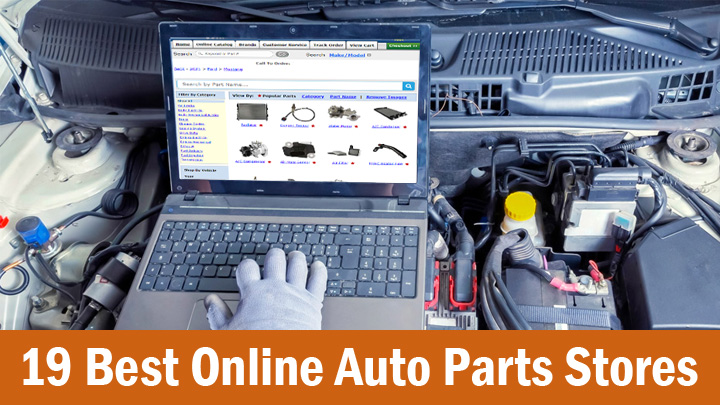

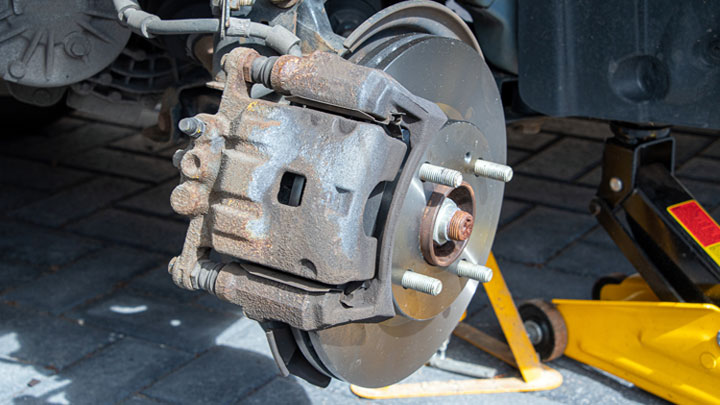
The last part of your article was the part that hit me the most, stating that it is important to know the limits of your vehicle. I’ve noticed that my car has not been working as effectively as it once did. I’ll be sure consider contacting a professional to aid me in my time of need.
Auto repair always needs safety tips. here are the best of such safety tips on auto repair. I highly request to those in need to go through this article at least once. You have done an excellent job with this content I must say.
Excellent article. We recently suffered a loss of a coworker when his car slipped of the jack while he was working under it. I would like to circulate this article among coworkers for a special safety briefing, is that permissible?
I’m sorry to hear about your coworker. I wrote this in hopes that I could help prevent that very thing from happening.
You may share the link wherever you like. Happy it could be of use to you guys.